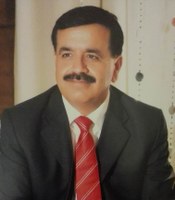News
26.09. ZMO Colloquium with Claudia Derichs – Re-thinking towards We-thinking. Reflections on Epistemic Decolonization
Why is it that too many intellectual cultures, intellectual histories, and theoretical contributions of individual thinkers from economically and politically marginalized regions of the world in the so-called ‘global South’ are still little known, underexplored and undervalued? I would like to reflect on this from three different but mutually entangled perspec- tives. One is informed by my own approach of criti- cal area studies, and touches upon the problem of embracing the plurality of ontological ecologies on our globe. Another one is (geo-)politically inspired. It addresses the issue of global power relations that are mirrored, among others, in the gap be- tween hegemonic and non-hegemonic languages, and the assumed necessity of generating applied knowledge rather than basic theoretical thought. A third one, related to the previous two, highlights the notion of local knowledge. Attending to the “why” question above, I suggest that local knowledge can contribute to a thorough re-thinking of predominant (Eurocentric) concepts and lead to what I would like to call “we-thinking”. The three perspectives are meant to open a forum for discussion and motivate the building of connections that transform what is already being connected – for instance through acts of translation. If epistemic decolonization were to be encouraged, strengthening connectivities may be suggested as a means to do so.
05.12 LECTURE SERIES: Community Affairs in Transition: Youth Engagement – Mateeullah Tareen
Mateeullah Tareen, Doctoral Fellow, Rheinische Friedrich-Wilhelms-Universität Bonn
Gastwissenschaftler Maj. Gen. (retd.) Shaukat Iqbal
Maj. Gen. (retd.) Shaukat Iqbal ist von Mai bis Juni 2015 Gast am Seminar für Südasien-Studien und hält die Vorlesungsreihe: The Tribal Areas of Pakistan and their Role in the Political Situation in the Region.
Call for Papers: Transformations of ‘the Political’
24 - 25th June, 2016: Young South Asia Scholars Meet (Y-SASM), CeMIS, Gottingen
Course Offerings for the winter semester 2020/21
Following courses are offered in the winter semester 2020/21 by the Department
Gastprofessorin Prof. Dr. Anuradha Roy
Dr. Anuradha Roy, Professor, Dept. of History, Jadavpur University, Kolkata
Guest Lecture: Talk by Dr. Sanaa Alimia about Refugee Cities in Pakistan
Refugee Cities: Afghan Refugees, Undocumented Migrants, and 'Devalued' Citizens in Urban Pakistan.
16th HIP Workshop: July 03, 2015
You are cordially invited to participate in the 16th Humboldt India Project (HIP) Workshop which will take place on the 03rd of July 2015, Invalidenstr. 118, Room 217, 2:00–7:00 pm.
Buchvorstellung: "Indonesien 1965ff - Die Gegenwart eines Massenmordes"
Annett Keller (Südostasien Informationsstelle)
Gastprofessorin Prof. Dr. Sudeshna Banerjee
Prof. Dr. Sudeshna Banerjee (Jadavpur University, Kolkata) teaches at the IAAW in the summer term 2015. She is a visiting professor of India Studies and as such occupying the ICCR (Indian Council for Cultural Relations) 'Rotating Chair'.



